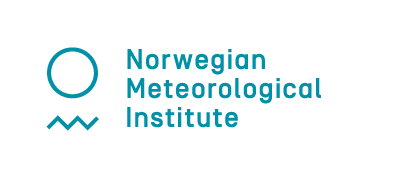5th Conference on Modelling Hydrology, Climate and Land Surface Processes
September 17 – 19, 2019, Lillehammer, Norway
We are experiencing climate change and need to understand how the hydrology and land surface processes response to weather and climate variability. To be better prepared and able to adapt to changes in the water cycle, models need to be an integrated part of decision processes. It is crucial to develop models that integrate both meteorological and hydrological processes, and are flexible and designed to include novel observations and new types of data.
The energy exchange at the land surface affects the climate, and when the climate changes so will the land surface. These changes alter various feedback mechanisms, influencing atmospheric circulation and hydrological cycle. One example is the albedo feedback; a warmer climate means less snow on the ground and a dark surface absorbs more energy than a light surface, thus reinforcing the warming signal through a positive feedback process. This is one of the main reasons why climate change affects high latitude regions stronger than most other regions of the world. Another example is soil moisture impacts on land surface-atmosphere interactions through redistribution of the available energy as latent and sensible heat fluxes. These examples show that we need to develop models that fully integrate two-way couplings between the atmosphere and land surface, and thus improve on today’s models that still rely on one-way couplings and thereby neglects important interactions and feedbacks.
Extreme weather events will occur more often in the future than today, and therefore we expect an increase in frequency of floods, droughts, and landslides. This will likely lead to larger damages on infrastructure and nature. The demand and production potential of renewable energy is also strongly linked to the hydrometeorological system. The Norwegian Hydrological Council recognizes the need to bring together hydrologists and meteorologists to discuss the integration of meteorology and hydrology in all modelling activities that includes weather, climate and water (e.g. weather forecasts, climate prediction, hydrological impact predictions, climate and hydrological model coupling, environmental hazards).
The conference aims to address topics related to modelling the climate system and the interface with the land surface processes and hydrological impacts of climate change. It will also focus on recent developments of observation systems and data analysis, including experiences with big data and machine learning. A special focus is given to cold climates, including the boreal, alpine and arctic zone. The conference is organized in three sessions.
Session 1: Water Cycle extremes. Extreme events are often caused by a combination of several physical processes on different spatial and temporal scales. In this session we aim to bring together studies on atmosphere, watershed and river channel processes important to understand, predict and adapt to extreme water cycle events and their impacts. Contributions may include observational and modelling studies of extreme events and their triggers on various time and spatial scales as well as studies on the mechanical behaviour of water (hydraulics) and its interaction with the river bed ( erosion and transport processes) during extreme events. We also invite studies on the impact of water cycle extremes and studies into the scientific methods used for analysis extreme events and their impacts. We particularly welcome presentations focusing on compound extreme events (i.e., the simultaneous or sequential occurrence of multiple extremes or the interaction of multiple drivers leading to an extreme event when combined).
Session 2: From modelling to decisions. The session welcomes contributions on studies on different aspects of the modelling to decision chain including analysis on the added value of downscaling, comparison of different downscaling and bias correction approaches, model sensitivity to the choice of input data, characterization and quantification of uncertainties, different impact modelling approaches and communication of forecasts and climate projections for decision-making. Contributions may address water related issues within hydrology, meteorology and climate. We especially invites studies with clear societal relevance related to management or adaptation strategies, warning and preparedness issues.
Session 3: Learning from environmental data: from field observations to machine learning. The volumes of data available for environmental research have grown tremendously in recent years. This data revolution has spurred the development of new analysis and computing techniques to draw insights from newly available data streams. At the same time, process insights from field experiments and observations remain as essential as ever. In this broad session we aim to showcase diverse efforts to extract process understanding from field observations, experiments, and data streams within hydrology and meteorology. We encourage contributions highlighting novel data sets, whatever their source (such as mobile phone masts, drones, smallsats, crowdsourcing, or field sites such as the one in Finse), and novel methods of analysing them.
Venue and accomodation
17 – 19 September 2019 at Scandic Lillehammer Hotel in Norway. Please make your hotel booking here.
Travel information
You can easily reach Lillehammer by train from Oslo Airport Gardermoen (approx. 1 h 40 min, 145 km). Travel time from Oslo city center (central train station) is approx. 2 h 10 min. From Lillehammer train station there is a short walk (800 m) to the hotel.
The train schedule can be found here: https://www.vy.no/en/
Conference committee
Ole Einar Tveito, Senior scientist, Norwegian Meteorological Institute (chair)
Asgeir Sorteberg, Professor, University of Bergen
Oddbjørn Bruland, Professor, Norwegian University of Science and Technology
Nils Otto Kitterød, Associate professor, Norwegian University of Life Sciences
Jan Magnusson, Senior scientist, Norwegian Water Resources and Energy Administration
Hans Christian Udnæs, Chief hydrologist, Eidsiva Energy Company
Anne Haugum, Senior advisor, NVE and executive secretary, Norwegian Hydrological Council
 |
![]()
